Laying out an Unfilled Base Tutorial
An unfilled base consists of two different sets of stakes: the horizontal stakes and the vertical stakes. Laying out the base is the term we use to describe the process of weaving those two sets of stakes together.
This tutorial can be used in making a basket either with or without a handle. The pictures do not use a handle, but if your project does include one, then simply replace the center stake with your handle.
Step 1: Begin by soaking the horizontal and vertical stakes (include the locking row if the pattern includes one). Warm water works the best!
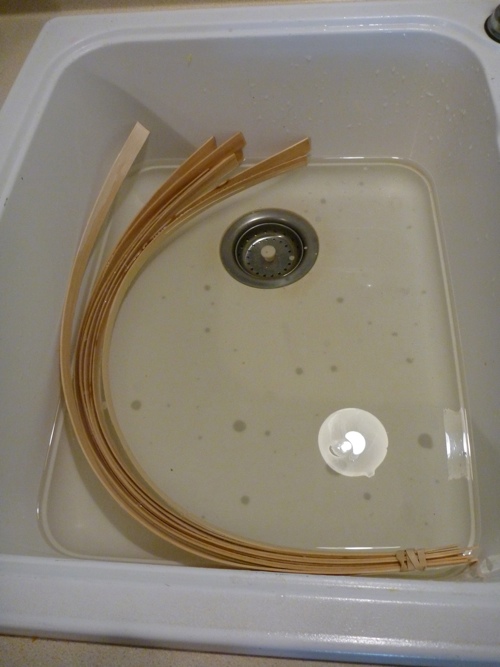
Step 2: Find the rough side of your stakes. Sometimes this is really easy. If you bend the stake over your index finger and find that one side has little splinters popping up, that’s the rough side. Place the rough side up/smooth side down on the table. Other times the reed may feel smooth on both sides, and you can’t find the rough side. If that’s the case it’s not going to matter!
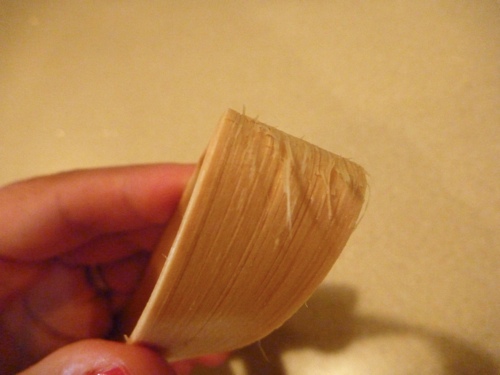
Step 3: Mark the center of the middle horizontal stake with a pencil. Match up the ends to find the center but don’t crease the middle too strongly.
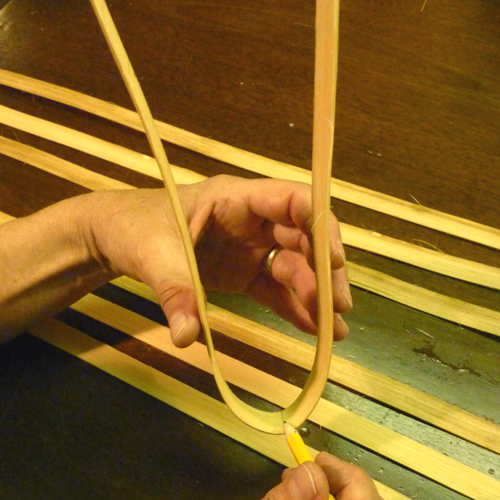
Step 4: Measure the horizontal length with this neat trick. If use of a locking row is included on your pattern, then divide the overall required length in half. On this basket, the horizontal measurement is intended to be 7”, so I lined up the center mark at 3.5”. I then mark a quarter inch less on each side of the total measurement. This compensates for the ¼“ locking row that will add a total of ½“ to the horizontal measurement.
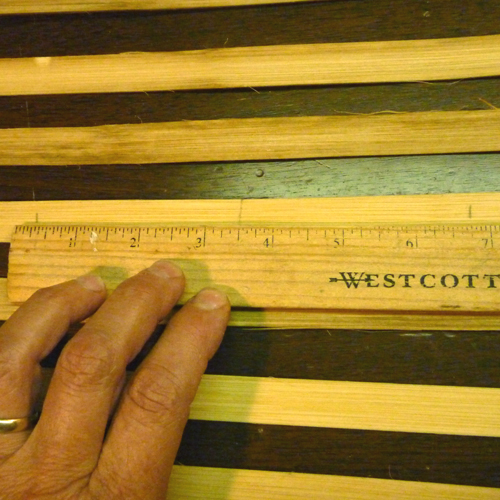
Step 5: Copy that measurement onto two more of the straightest horizontal stakes to act as your outside stakes. This will help keep the correct size on the whole base after all the vertical stakes are added. Lay out the horizontal stakes rough sides up with an even amount of space in between the stakes.
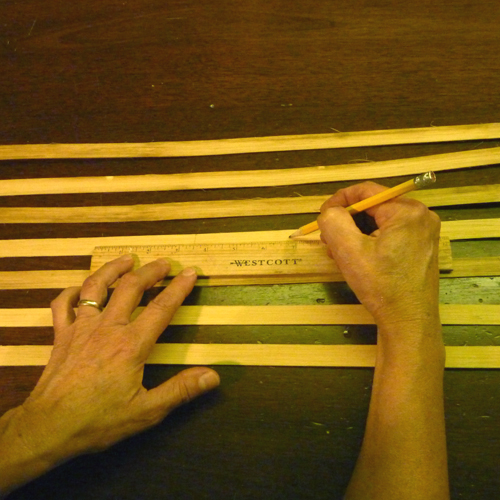
Step 6: Time to add the vertical stakes! Find and mark the center of either the handle (if the basket has one) or a straight vertical stake – remembering to keep the rough side up. Check the pattern to see if you need to begin by lifting the odd or even horizontal stakes. In this pattern, I am instructed to lift the odds, #’s 1, 3, 5 and 7. Using your left forearm to hold all of the horizontals in place, lift the odd (or even, based on your pattern) stakes, and slide the handle or center stake under the lifted stakes and over the even stakes.
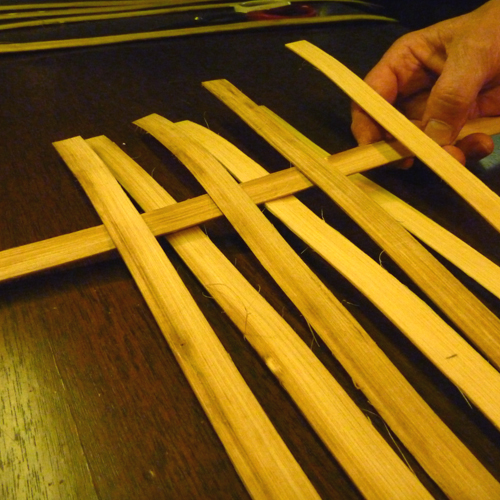
Line it up with your center marks on the horizontal stakes, and double check to make sure they haven’t moved around too much.
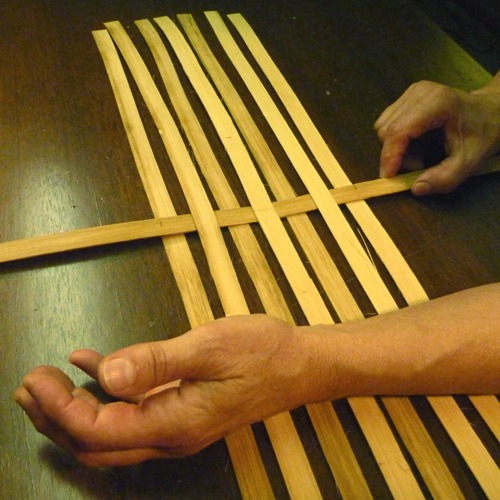
Step 7: Keeping your left arm in the same place, find the rough side of your next vertical stake. Slide the vertical stake under the even stakes and bring it toward the center until it’s about a fingertip apart from the center stake. You’ll need to adjust all of your vertical stakes at the end to make sure there is an equal amount of space between each of the vertical stakes.
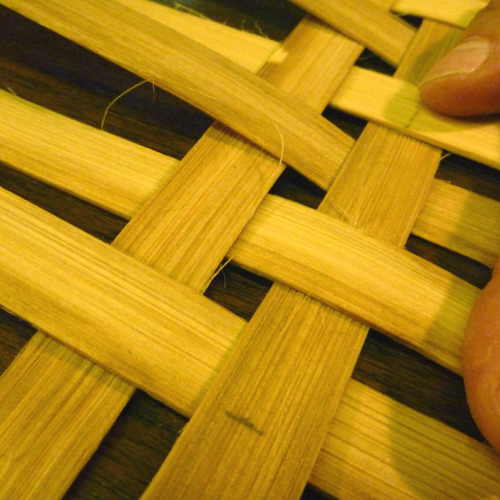
Check your pattern to see how many stakes to weave in on the left and on the right of the center stake.
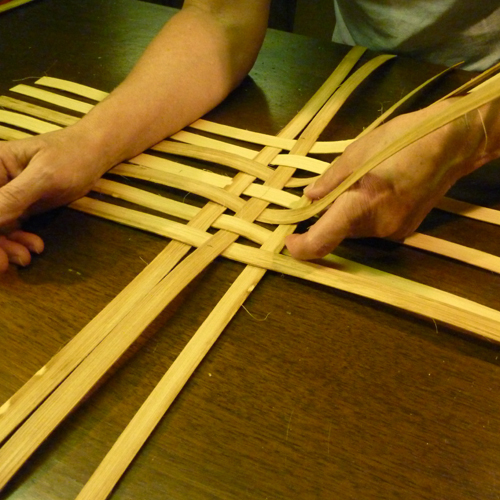
Once you have them all woven in, tighten or loosen up the base to line up with the end markings measured on the horizontal stakes.
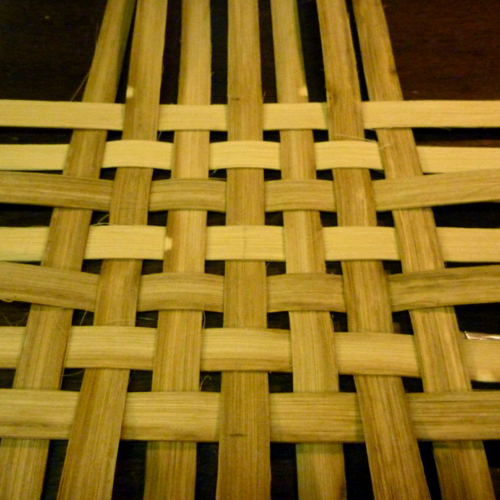
Also make sure the verticals are even in length with each other. You can mark the center of each vertical stake, or you can simply eyeball them to make sure they are even.
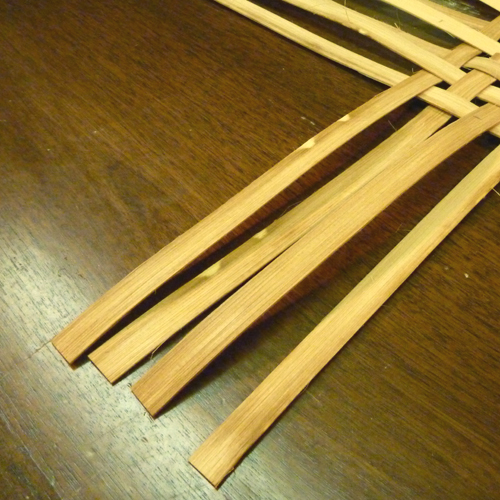
Step 8: Use a ruler to measure that the corners of the base are at the correct lengths. This is called “squaring up the base”.
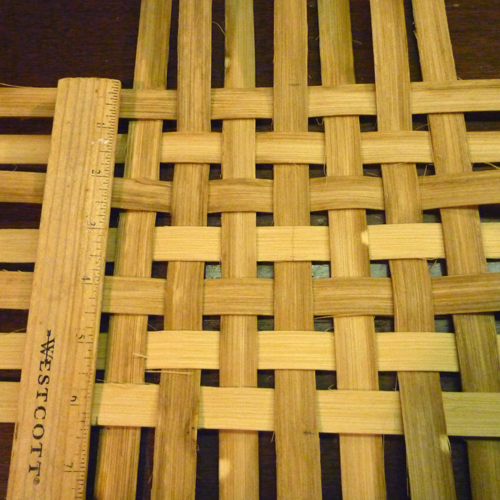
Step 9: Either move on to the locking row tutorial or the upsetting the stakes tutorial, based on what your pattern calls for!
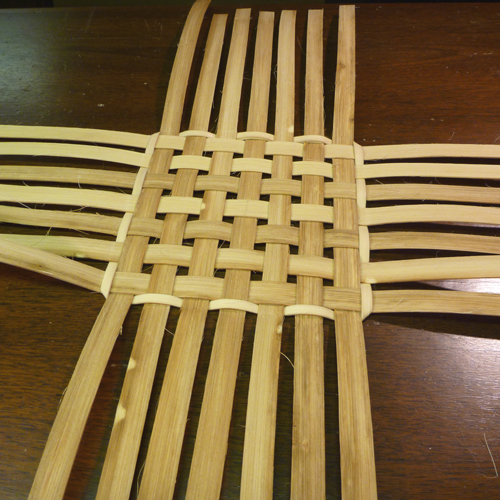
Nicely done!
Recent Comments
The Basket Blog
Basket Finishes
July ‘25 Free Pattern
June ‘25 Free Pattern
Details & Such
Teaching Schedule
Danielle teaches many classes throughout the school year in various places in eastern Minnesota. For more information and a schedule, see Danielle's Teaching Schedule, or .(JavaScript must be enabled to view this email address).
Wholesale Inquiry?
If you are interested in wholesale pricing, please .(JavaScript must be enabled to view this email address) that has "wholesale inquiry" in the subject field.
Contact Information
.(JavaScript must be enabled to view this email address)
1422 Martha St N
Stillwater, MN 55082

Weaving Lessons
- Basket Finishes
- Staining Tutorial - With or Without Leather
- Weaving with a Wooden-Bottom Base Tutorial
- Wire and Bale Handles
- Weaving with Leather Handles
- Twining a Round Base Tutorial
- Leather Handled Tote Strapping Tutorial
- Singeing Tutorial
- Twining the Last Weaver Tutorial
- Sea Grass Continuous Weave Tutorial
- To stain or not to stain … that is the question!
- Shaping the Sides of a Basket Tutorial
- Double-Lashing Tutorial
- Clip and Tuck Tutorial
- Weaving the Sides Tutorial




There are no comments yet... You could be the first!